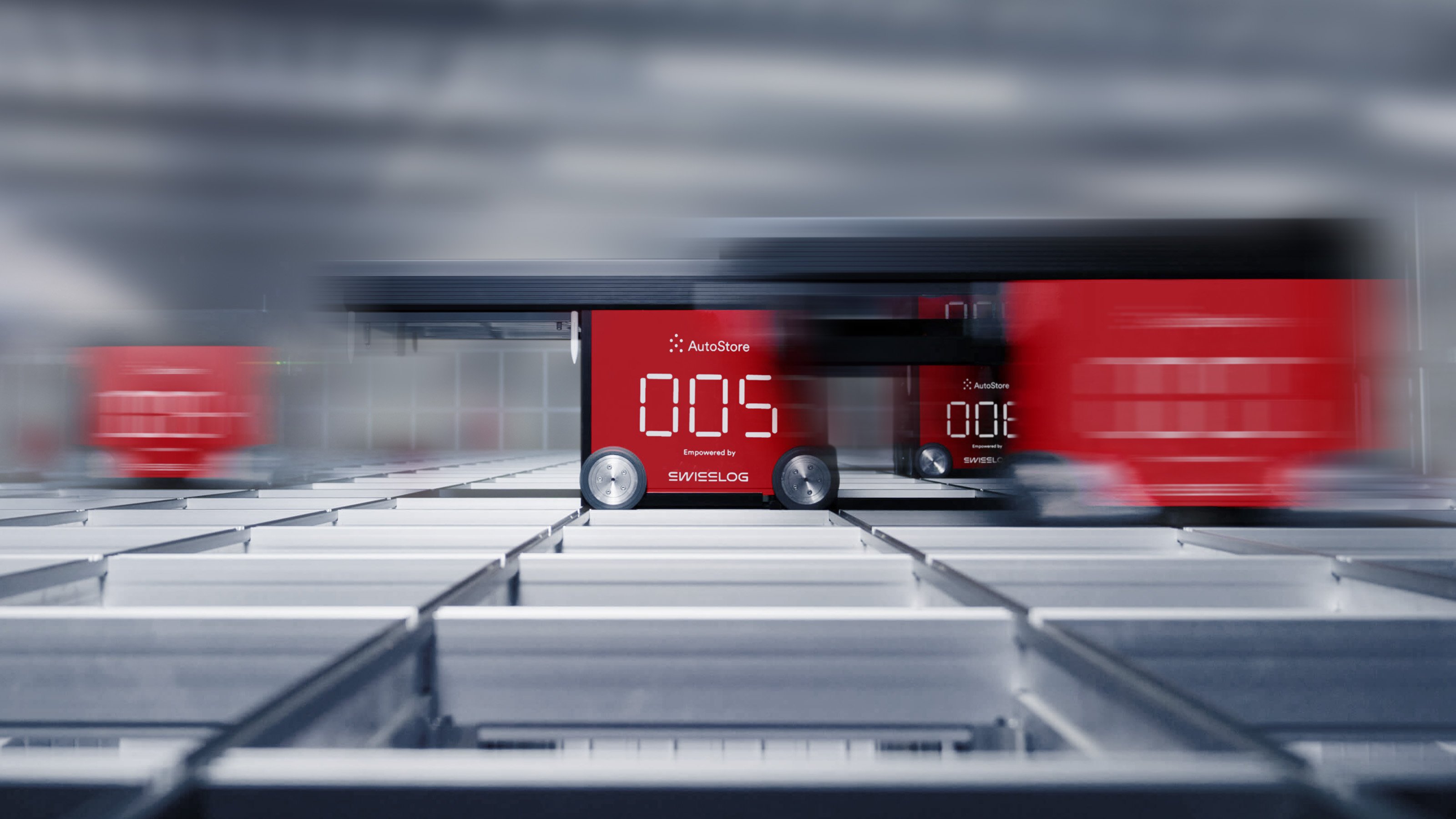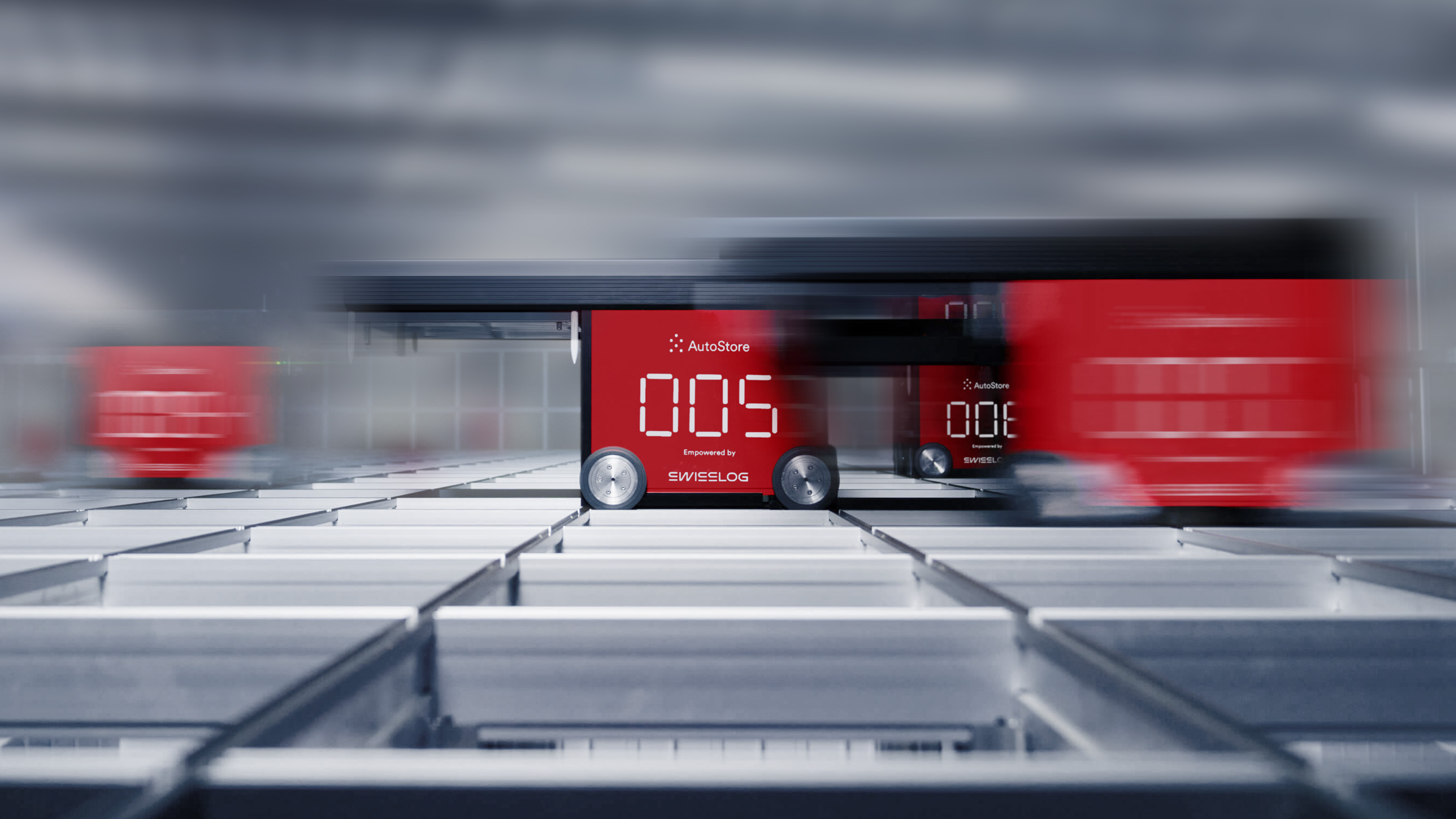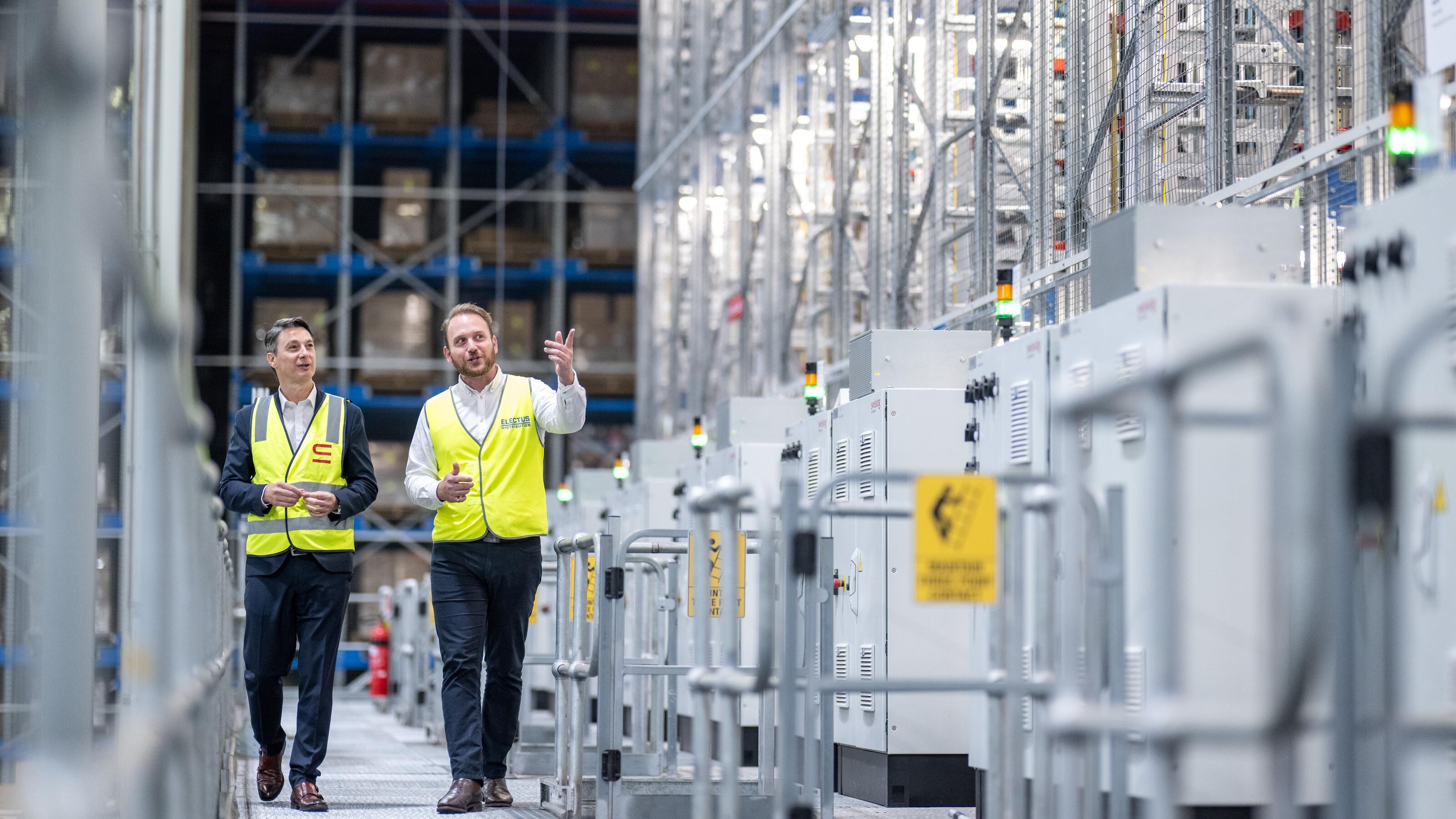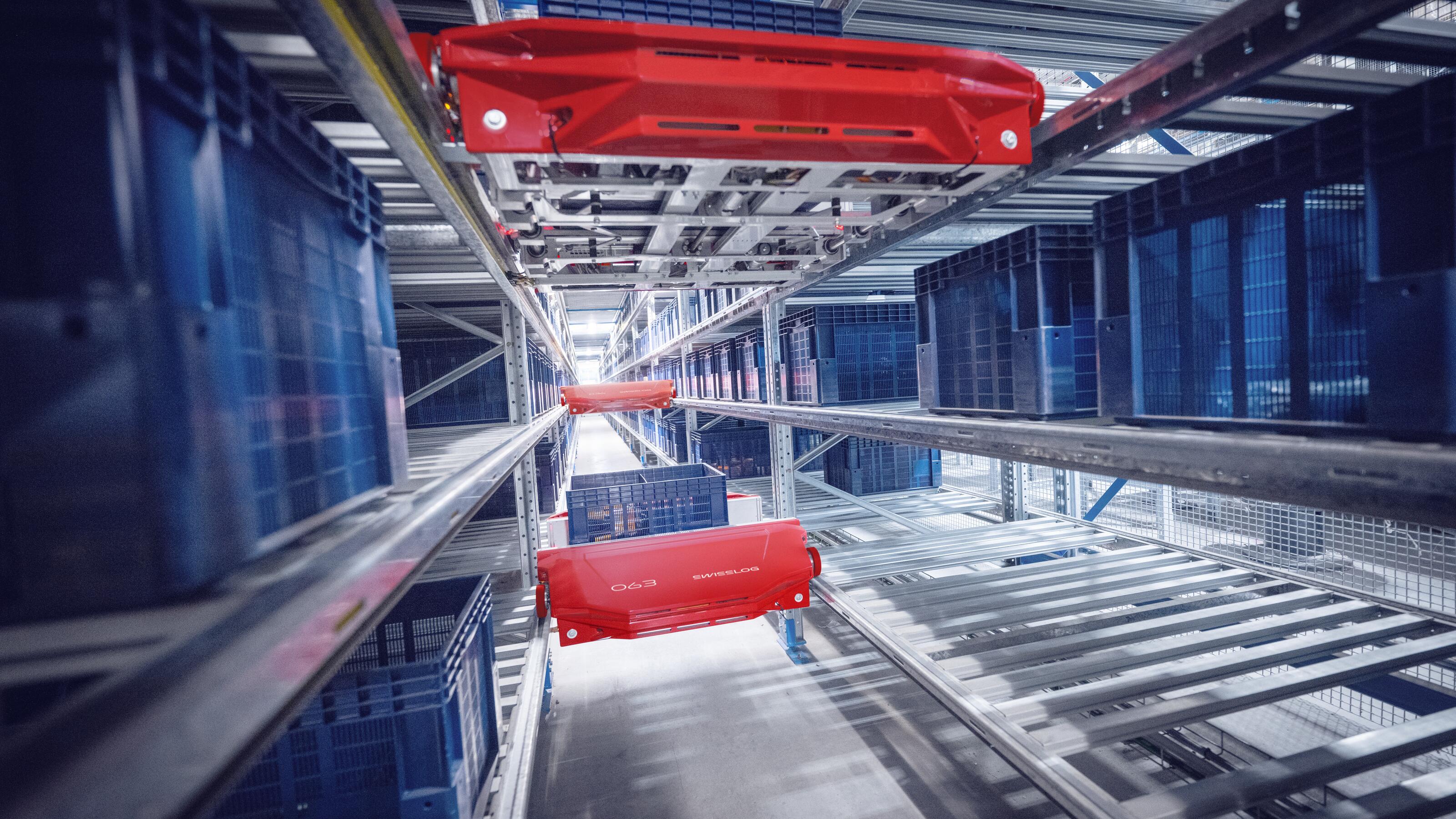Key Takeaways from the 2023 NextGen Supply Chain Conference
Colman Roche
30 ottobre 2023
Gain valuable insight from Swisslog customers Medline and Cardinal Health into the role of automation and technology in supply chain management.

I was privileged to represent Swisslog at the NextGen Supply Chain Conference in Chicago, October 16-18, 2023. If you are not familiar with the event, NextGen Supply Chain is one of the premier conferences for senior supply chain leaders with a strong focus on digitalization, transformation and automation. This year’s conference featured a number of excellent presentations that provided insight into the future of supply chain management.
AutoStore is, of course, now a well-established and proven system. Swisslog has implemented more than 370 AutoStore systems and Medline is the world’s largest AutoStore operator with 19 systems deployed across the company’s network. But at the time Medline made their decision, the technology was unproven in the U.S. and it’s easy to forget how bold that decision was at the time. It’s obviously worked out well for them as their continued investment in network expansion and automation has allowed the company to offer one-day shipping to 95% of the U.S. and to expand the services they offer to customers. It was also clear that Medline is not resting on its laurels as a pioneering user of innovative technology. The company continues to evaluate new automation technologies with the potential to improve efficiency, capacity and resiliency.
The choice of Medline as the opening keynote was a good one as they introduced major themes that would be explored throughout the rest of the event, including transformation, resilience and artificial intelligence.
Medline Sets the Tone
The conference opened with a keynote presentation from medical supply manufacturer and distributor Medline on how automation is transforming the healthcare supply chain. Medline was able to speak from experience because they have been ahead of the curve on “next generation” automation, working with Swisslog to implement the first AutoStore system in the U.S. in 2013.AutoStore is, of course, now a well-established and proven system. Swisslog has implemented more than 370 AutoStore systems and Medline is the world’s largest AutoStore operator with 19 systems deployed across the company’s network. But at the time Medline made their decision, the technology was unproven in the U.S. and it’s easy to forget how bold that decision was at the time. It’s obviously worked out well for them as their continued investment in network expansion and automation has allowed the company to offer one-day shipping to 95% of the U.S. and to expand the services they offer to customers. It was also clear that Medline is not resting on its laurels as a pioneering user of innovative technology. The company continues to evaluate new automation technologies with the potential to improve efficiency, capacity and resiliency.
The choice of Medline as the opening keynote was a good one as they introduced major themes that would be explored throughout the rest of the event, including transformation, resilience and artificial intelligence.
Digital Transformation is Driven by Automation

Transformation was one of the most commonly heard and discussed topics throughout the conference. What was interesting about these discussions was that the term has different meanings for different companies, depending on where they are at in their automation journey.
For companies early in their journey, supply chain transformation and automation become practically synonymous as they look for ways to address two of the biggest issues supply chain leaders face today: labor availability and the need for greater process efficiency. Many of these companies are looking for experienced partners and proven best practices that will enable them to automate with confidence and accelerate the transformation of their supply chains.
Companies further along on their journey are looking for new and emerging technologies that can supplement the technologies they already have in place. They are also leveraging the benefits of automation to create new revenue opportunities or accelerate the move into emerging markets. The experience Cardinal Health shared at the conference is one example. They are working with Swisslog to open two automated distribution centers to support their fast-growing Cardinal Health At-Home Solutions business.
All in all, the frequent connection between automation and digital transformation reinforced for me how the distribution center has evolved from a cost center into a strategic business asset for organizations that embrace transformation.
Interestingly, automation was frequently presented as playing an important role in issues related to resiliency and labor management. This wasn’t about using automation to replace FTEs, but as an opportunity to reskill existing labor and enhance employee engagement in ways that increase satisfaction, retention and recruiting. This mirrors our experience at Swisslog where automation is often embraced by our customers’ employees for its ability to eliminate the most strenuous parts of their job while increasing their value to the organization.
While AI has incredible potential to shape the future of the supply chain, there does seem to be a lack of awareness of the role it is already playing. Swisslog, for example, is using it in our ItemPiQ robot, which works with goods-to-person automation systems to automate the picking process. AI helps the system learn the best way to grasp different products as it operates, improving pick reliability and expanding the number of pickable products.
Companies further along on their journey are looking for new and emerging technologies that can supplement the technologies they already have in place. They are also leveraging the benefits of automation to create new revenue opportunities or accelerate the move into emerging markets. The experience Cardinal Health shared at the conference is one example. They are working with Swisslog to open two automated distribution centers to support their fast-growing Cardinal Health At-Home Solutions business.
All in all, the frequent connection between automation and digital transformation reinforced for me how the distribution center has evolved from a cost center into a strategic business asset for organizations that embrace transformation.
Preventing Future Disruptions
The supply chain industry is working aggressively to ensure it is better positioned to withstand future disruptions than it was in the past. Flexible automation was mentioned frequently as an important component of a resilient supply chain as it provides both the predictability to meet projected demand and the agility to respond quickly to unprojected demand.Interestingly, automation was frequently presented as playing an important role in issues related to resiliency and labor management. This wasn’t about using automation to replace FTEs, but as an opportunity to reskill existing labor and enhance employee engagement in ways that increase satisfaction, retention and recruiting. This mirrors our experience at Swisslog where automation is often embraced by our customers’ employees for its ability to eliminate the most strenuous parts of their job while increasing their value to the organization.
The Expanding Role of AI
Finally, it’s probably not possible to have an industry event today without discussing AI and this topic was covered in depth at NextGen Supply Chain. Much of the focus was on education as supply chain leaders seek information on the future role AI may play in automating planning, improving decision making, and enabling collaborative robotics.While AI has incredible potential to shape the future of the supply chain, there does seem to be a lack of awareness of the role it is already playing. Swisslog, for example, is using it in our ItemPiQ robot, which works with goods-to-person automation systems to automate the picking process. AI helps the system learn the best way to grasp different products as it operates, improving pick reliability and expanding the number of pickable products.
Helping Companies Advance on their Automation Journey
One thing was clear from this year’s event: automation is a process rather than an event. Whether you’re just getting started on your journey or preparing to take the next step, consider engaging with Swisslog. We offer a full portfolio of flexible automation technologies and the experience and expertise to help you make the right decision for your business. To learn more, contact us.Prossimo articolo

AutoStore
Colman Roche
4 febbraio 2025
Quattro domande per capire se AutoStore è adatto alla vostra attività
AutoStore offre densità, produttività e disponibilità superiori per i magazzini. Grazie al software SynQ di Swisslog, offre un ROI significativo, anche se non è adatto a tutti.











